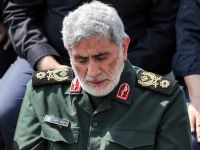Ras Al Khaimah Investment Authority (RAKIA), a major provider of investment opportunities and one-stop solutions in its free zones, industrial parks and offshore facilities as well as in real estate developments and other ventures, has announced that Arab and global business leaders have arrived in Ras Al Khaimah as the Global Arab Business Meeting 2010 opened Sunday (September 26, 2010) at the Al Hamra Fort Hotel. Dr. Khater Massaad, Chief Executive Officer, RAK Investment Authority (RAKIA), and Frank-Jürgen Richter, President of Horasis, welcomed the delegates on behalf of the organisers and later joined dignitaries in officially opening the Global Arab Business Meeting 2010.
Addressing the high-profile delegation at the welcome dinner, H.H. Sheikh Saud Bin Saqr Al Qasimi, Crown Prince and Deputy Ruler of Ras Al Khaimah, urged Arab countries to invest more in education and research to become relevant in an increasingly globalised world. He said: "New scientific innovations – the internet, the bulk carriers, mobile phones and advanced logistic systems, have brought the world closer than ever before. To be relevant in the increasingly interconnected and globalised world of today, the Arab World should invest more in education and research. There is a huge correlation between education and economic growth and we need to understand that education is the key to empowering our young generation and help them reach their true potential."
H.H. Sheikh Saud also called on Arab leaders to develop sound investment strategies, create good infrastructure, and develop a good education system and work ethics. He pointed out that the same approach has proved beneficial and highly successful for Ras Al Khaimah, as it has helped develop and implement innovative business reforms that have enhanced the emirate's competitiveness and created a business-friendly environment.
"Here in RAK, we have simplified the procedures for setting up businesses and have created one-stop-shop investment avenues and easy licensing procedures. The results have been phenomenal and during the past seven years the emirate has achieved double-digit growth," H.H. Sheikh Saud said in his speech.
Also speaking at the event, Moh'd Abu-Hammour, Minister of Finance of Jordan, likewise underlined the need to create an environment that is conducive for investment and economic growth. Mr. Abu-Hammour called on the participants to harness the full potential of public-private partnerships (PPP) in implementing key projects across the region. He described the private sector as an "engine for growth" and noted that governments must assume the role of "facilitator" to proactively encourage private sector participation in various development initiatives. Mr. Abu-Hammour said that some of the areas where PPP projects can be successfully implemented in the region include renewable energy, fossil fuels, energy, water and sanitation, tourism and healthcare.
Vayalar Ravi, Union Cabinet Minister of Overseas Indian Affairs, who also delivered a speech during the opening ceremony, pointed out the booming trade relations between India and the Arab World. He said that from USD 7 billion in 2001, India-Arab trade rose to USD 20 billion in 2005-06 and was nearing USD 100 billion in 2009. Mr. Ravi further said that GCC countries account for the bulk of trade activity between India and the Arab World, with figures reaching USD 90 billion in 2008. The Indian Minister likewise hailed GCC countries for being among the world's 50 most business-friendly economies, noting that 16 Arab economies implemented 40 economic reforms in 2008, including 38 that focused on facilitating business in the region through simpler and easier processes.
Following Sunday's welcome reception, the Global Arab Business Meeting 2010 resumes Monday (September 27, 2010) starting with a series of Breakfast Sessions at the Al Hamra Convention Centre, focusing on topics such as "A New World Order", "Fuelling Economic Growth", "The Sustainable Corporation", and "Real Estate and Infrastructure: The Road Ahead". The opening plenary will be held later in the morning with H.H. Sheikh Saud joining a prominent list of panellists that includes Esko Aho, Executive Vice President of Nokia and former Prime Minister of Finland, and Saad Al-Shuwaib, Chief Executive Officer of Kuwait Petroleum Corporation.
There will also be Boardroom Dialogue Sessions discussing topics on "Arab Entrepreneurs: Spearheading Globalization", "Investing Overseas", "Strategies for Success in the Middle East", and "Scorecard on Logistics", "A Roadmap for the Acquisition of Foreign Firms", "Human Resources: Moving up the Global Level Playing Field", "Creating Arab Brands", "The Arab World's Natural Resources", "Riding the Next Wave of Financial Services in the Arab World", "Renewable Energy: The Arab World's New Growth Pattern", "Arab Technology Pioneers' Global Awakening", and "How Can the Arab World Become a Global Manufacturing Hub?".
The other plenary sessions will have topics on "Arab Business Leaders of the Year", "The Arab World's Global Trade and Investments" and "Building Global Firms of Arab Origin", while a farewell dinner will be held later in the evening with the theme "A social evening to harness the Arab world's past, present and future." A tour has also been organised on Tuesday (September 28, 2010) for delegates to explore the unique attractions of Ras Al Khaimah.
Organised by Horasis: The Global Visions Community, an independent international organisation committed to enacting visions for a sustainable future, and co-hosted by RAKIA, the Global Arab Business Meeting features world-renowned keynote speakers who will talk about some of the most important issues affecting economic growth in the region, including political relations between the Arab World and other countries, the status of the region's investments in real estate and infrastructure development, overseas investment opportunities, and creating Arab brands, to name a few.







